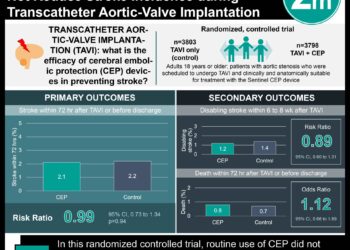Antipsychotics over-prescribed to patients with intellectual disability in United Kingdom
1. The rate of antipsychotic prescriptions far exceeded the prevalence of severe mental illness, epilepsy, and dementia in patients with intellectual disability than in the general population.
2. Challenging behavior was present in over one-third of patients with intellectual disability with antipsychotic prescription rates being significantly higher in these patients.
Evidence Rating Level: 2 (Good)
Study Rundown: Patients with intellectual disability have rates of mental illness equal to or higher than the general population and many of these patients have also been identified as having challenging behavior or behavioral problems, i.e. behavioral issues that challenge the safety of the patient’s themselves or people around them or restrict access to facilities. Further, because of atypical presentations of mental illness and behavioral issues, there has been concern that psychotropic medications may be inappropriately prescribed more often than necessary in this cohort of patients. This cohort study, based on a large database of United Kingdom general practices (The Health Improvement Network; THIN), found that in patients with intellectual disability, the prevalence of mental illness was 34% and the prevalence of severe mental illness, such as schizophrenia, bipolar disorder, or other psychoses, was about 9%. Challenging behavior was also reported in over one-third of patients with intellectual disability. Though these rates are higher than most reported in the general population, the rate of antipsychotics prescription was disproportionately higher in patients with intellectual disability without diagnosis of severe mental illness than in patients without severe mental illness in the general population. Antipsychotic prescription rates increased with age, challenging behavior, epilepsy and dementia even when taking into account sex, social deprivation, and sleep disorders.
This study suggests that many patients with intellectual disability are being prescribed antipsychotics for behavioral problems or without a clear diagnosis of mental illness. This common departure from many current health guidelines also seems to be evident in other European cohort studies but much less so in North American practices. With a large cohort of patients and a strong study design, it seems likely that antipsychotics are being prescribed frequently to patients with intellectual disability to treat issues unassociated with mental illness in the United Kingdom.
Click to read the study in the BMJ
Relevant Reading: Challenging behaviour and learning disabilities: summary of NICE guidelines
In-Depth [retrospective cohort]: 33,016 patients with intellectual disability were identified from The Health Improvement Network (THIN) with 211,793 patient-years of data collected from 571 general practices representing 3.7 million active patients in the United Kingdom. 34% of patients with intellectual disabilities had a history of mental illness with 9% having severe mental illness. From 1999 to 2013, the rate of severe mental illness diagnosis decreased by 5% per year (CI95 3 to 7%) while rates of anxiety and depression diagnosis did not change. 36% of patients with intellectual disability had challenging behavior. By contrast, 63% of patients with intellectual disability had a history of being prescribed psychotropic drugs, and the rate of antipsychotic prescriptions fell by 4% each year (CI95 3 to 5%). Of patients with intellectual disability, 71% were prescribed antipsychotics without a comorbid diagnosis of severe mental illness and 26% also lacked a history of any challenging behavior. Increasing age, severe mental illness, depression, anxiety, epilepsy, autism, and dementia were all associated with increased incidence of challenging behavior (p < 0.05), while no associations were found by sex or social deprivation using the Townsend scale. In addition, all of these variables associated with challenging behavior were associated with an increased in antipsychotic prescription after controlling for age, sex, neuropsychiatric diagnosis, social deprivation, and year of study entry. Those with challenging behavior had a higher likelihood of being prescribed antipsychotics as shown by an incidence rate ratio of 2.08 (CI95 1.90 to 2.27) than those without challenging behavior.
Image: PD
©2015 2 Minute Medicine, Inc. All rights reserved. No works may be reproduced without expressed written consent from 2 Minute Medicine, Inc. Inquire about licensing here. No article should be construed as medical advice and is not intended as such by the authors or by 2 Minute Medicine, Inc.







